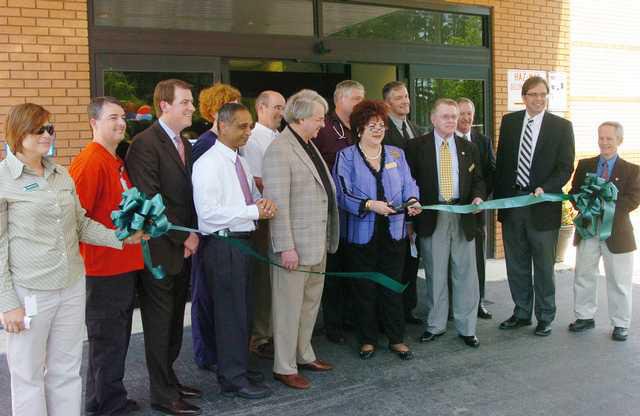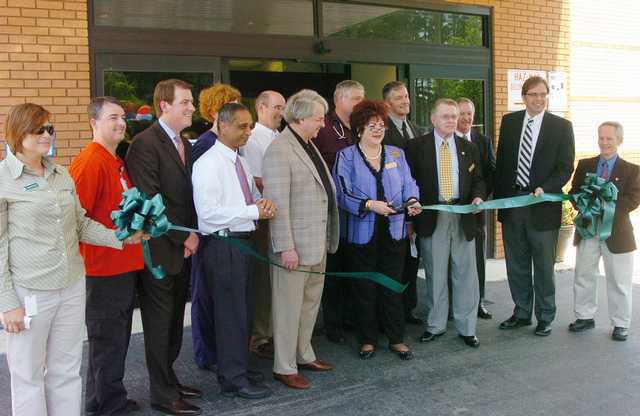Effingham Hospital is trying to strike a blow against the “stroke belt.”
The hospital is partnering with St. Joseph’s/Candler for a stroke treatment program that could cut into the effects of a stroke. Effingham Hospital and St. Joseph’s/Candler representatives unveiled the REACH program that will allow a neurologist in Savannah to communicate with the Effingham Hospital emergency room to determine if a patient is suffering stroke symptoms.
Georgia is third in the nation in the incidence of strokes, and strokes are the third-leading cause of death in the U.S. Strokes are also the No. 1 cause of disability in the nation.
“We live in the stroke belt,” said Dr. Frank LaFranchise, medical director of the SJ/C stroke program. “Clearly, there is work to be done. But this is a giant step toward beating the effects of stroke.”
Through the REACH (Remote Evaluation of Acute Ischemic Stroke) telemedicine system, a patient brought into the ER with a possible stroke can have their information transmitted to an on-duty neurologist. The neurologist can communicate directly and immediately to the ER to determine if the patient is having a stroke.
Once that determination is made, then a doctor can prescribe tissue plasminogen activator (tPA), a clot-busting drug that can reduce the effects of a stroke and can reduce the effects of possible permanent disability. The only drug approved by the U.S. Food and Drug Administration for the treatment of ischemic stroke, tPA must be administered within three hours of the start of stroke symptoms.
“We believe we have the opportunity to save many, many more lives than we have saved in the past,” Effingham Hospital CEO Norma Jean Morgan said.
“You don’t have to be in Savannah to get great health care,” said Stephen Mobley, chairman of the Effingham Hospital board of trustees.
In 2008, 25 patients were taken to Effingham Hospital with possible stroke symptoms. Eleven were treated and discharged but 14 were transferred to Savannah hospitals for further treatment by a neurologist.
Morgan said the REACH program may help dissuade some people who think they can beat time by going to a hospital in Savannah rather than going to the Effingham ER first. That time could be critical in making the determination if tPA needs to be administered.
“There are still many who don’t know about the drug,” Dr. LaFranchise said. “This program is designed to give the drug to people who need it in a timely fashion and in a safe way.”
With the REACH telemedicine connection, a neurologist such as Dr. LaFranchise can examine a patient and give his diagnosis within 10-15 minutes.
“In 10 minutes, we can make a decision if the patients needs tPA or not,” Dr. LaFranchise said.
St. Joseph’s/Candler officials went to see how the Medical College of Georgia expanded its services to Augusta-area hospitals. Effingham Hospital officials also traveled to Sandersville to see how it works on the other end.
Currently at St. Joseph’s/Candler, 2 percent of patients eligible for tPA get the drug when needed. Through the Medical College of Georgia’s program, that number is about 15 to 25 percent, Dr. LaFranchise said.
“We think we can do better,” he said.
Effingham Hospital ER Director Dr. Ross McCabe noted that a stroke is “a brain attack” and needs timely attention.
“This technology represents a quantum leap in our care,” he said. “This will make a difference in many people’s lives.”





